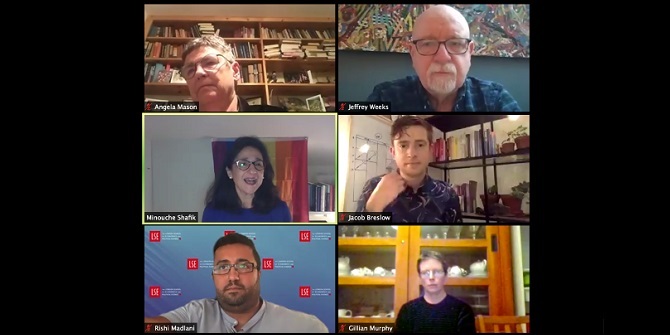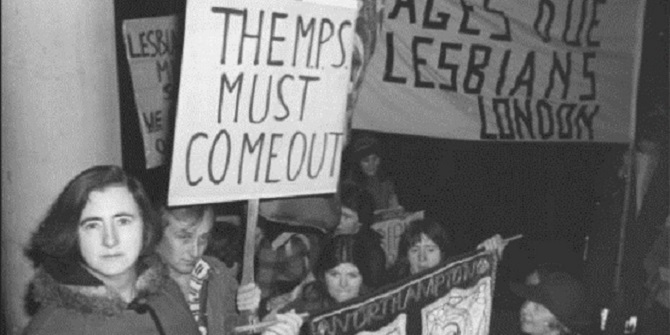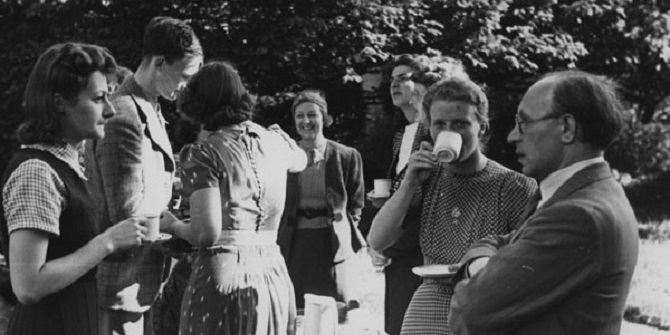In 1970 an LSE student founded the UK branch of the Gay Liberation Front, a protest group that demanded equal rights for LGBT people, and for all. LSE Library Curator Dr Gillian Murphy introduces the Gay Liberation Front and shares some of the posters, photographs and leaflets relating to their activities that you can find in the archives here at LSE.
The Gay Liberation Front (GLF) originated in the United States shortly after the Stonewall Uprisings that began on 28 June 1969 in New York City. In the following summer, Bob Mellors, a student at LSE, and Aubrey Walter attended the Black Panthers’ Revolutionary People’s Constitutional Convention in Philadelphia. After returning to the UK, full of inspiration, they started a branch of GLF, holding its first meetings at LSE in the autumn of 1970.
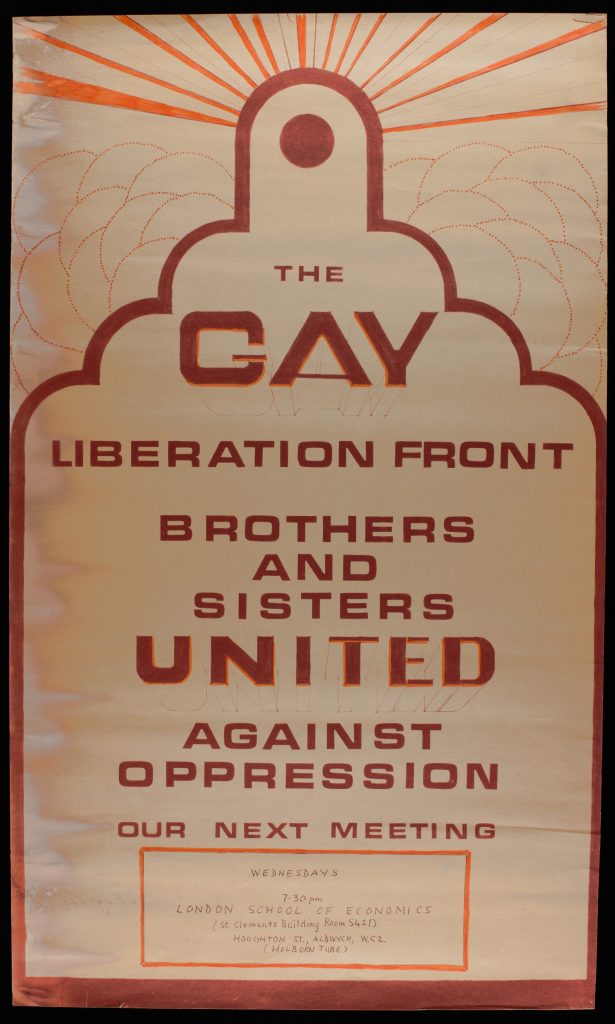
The GLF wasn’t about changing the law – it was about changing society and changing themselves. They quickly drew up a list of demands. They wanted freedom for all oppressed people which included action against discrimination in the workplace, in education, and by the medical establishment, and to be free to display gay affection in public.
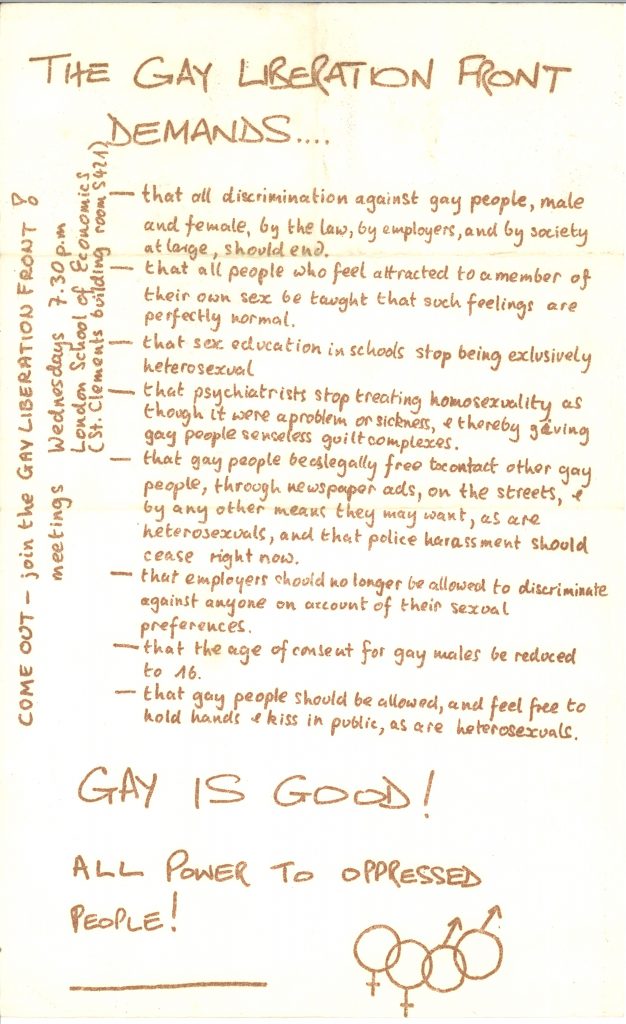
No longer were they going to lead double lives. No longer were they going to live in shame. Slogans such as “Gay is Good”, “All power to oppressed people” and “Come Out” can be seen on their leaflets and posters, reinforcing their message.
The GLF’s first protest was held on 25 November 1970 in Highbury Fields against the arrest of Louis Eakes on mere suspicion that he was cruising.
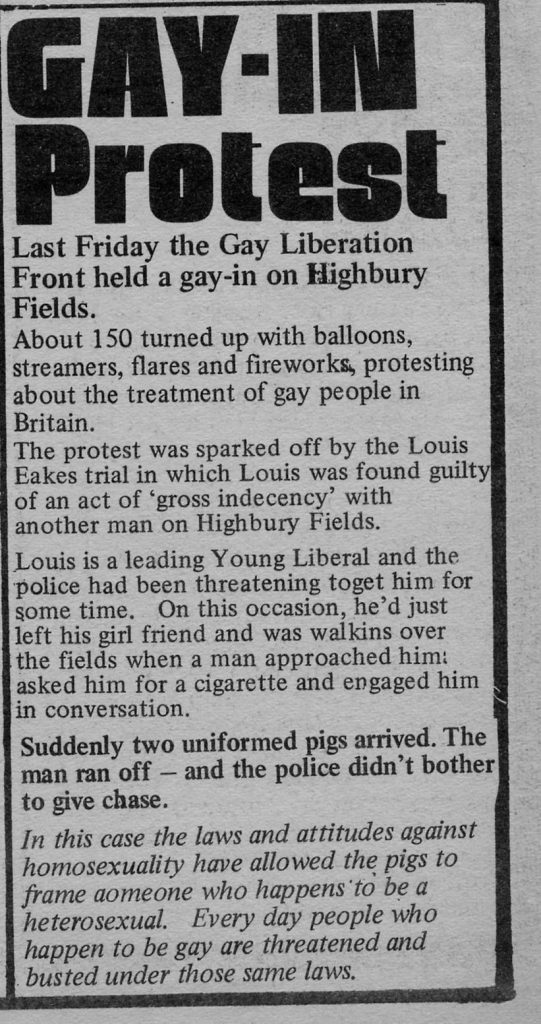
HCA/CHESTERMAN/28. LSE
Towards the end of 1970, a media workshop had formed and produced GLF’s first newsletter “Come Together”. Events were listed – a GLF dance at LSE on 4 December 1970 in the concourse area of St Clement’s Building, which sadly no longer exists, and another dance planned at Kensington Town Hall on 22 December.
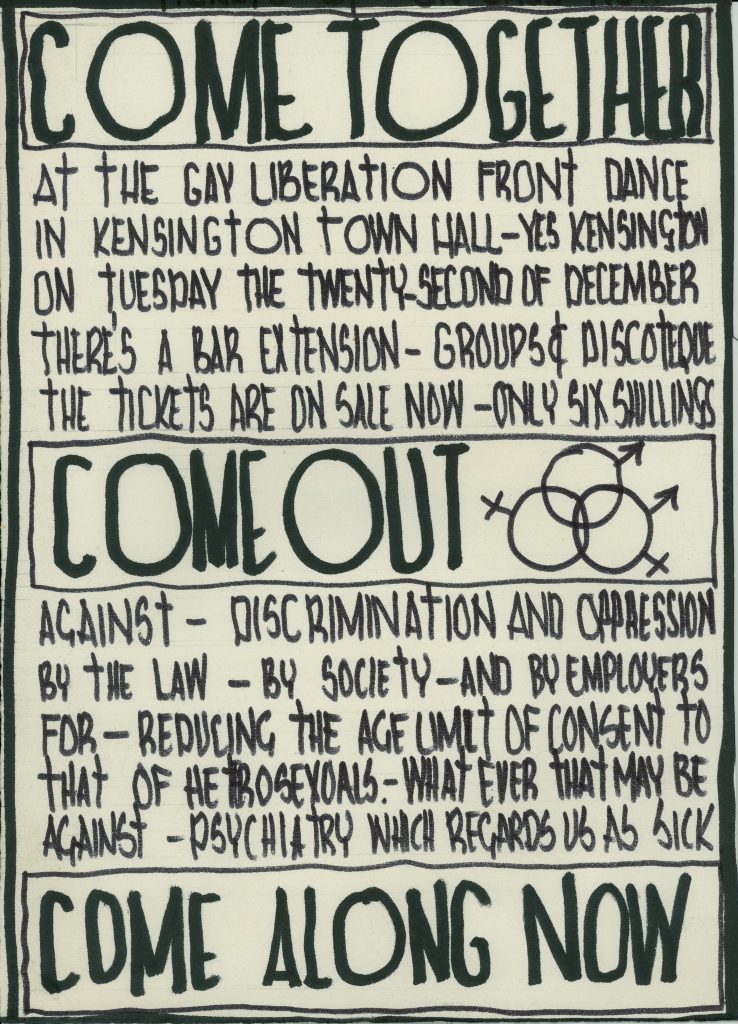
Other functional groups soon followed: a counter-psychiatry group; a demonstrations group; a group just for sisters; a Street Theatre group; an education group; and a schools group.
“Gay Days” were held in parks with games, kiss-ins, spin the bottle and sing-a-longs to emerging gay folk classics.
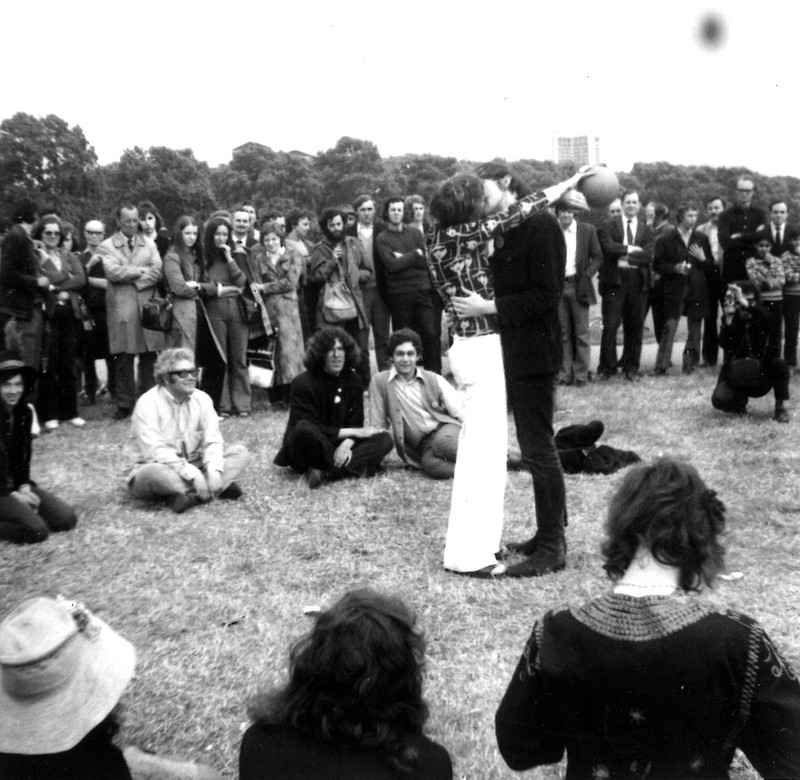
On 28 August 1971, the GLF Gay Youth group organised a demonstration in Trafalgar Square demanding age of consent be reduced from 21 to 16, the same as for heterosexuals.
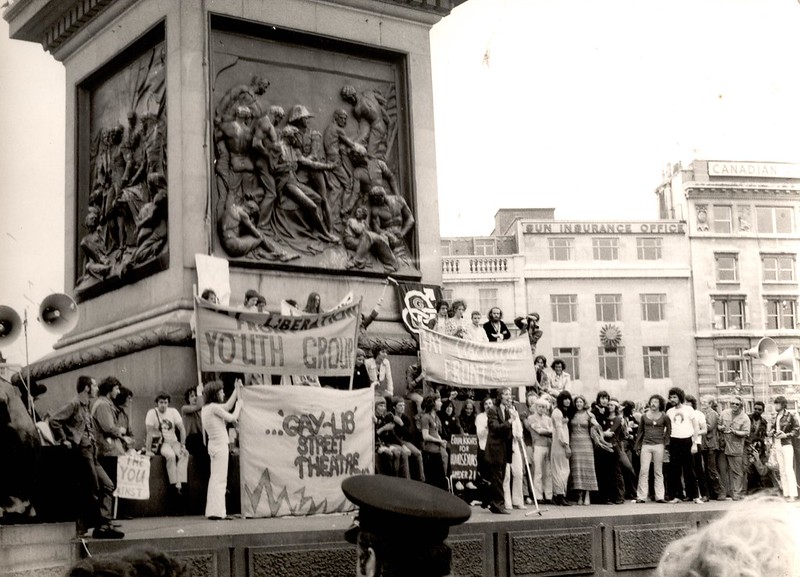
In July 1972, the GLF organised the first Gay Pride march starting at Trafalgar Square and ending in Hyde Park. Homemade banners read “Gay is Proud”, “Homosexuals are Nature’s Children” and “We are humansexuals”.
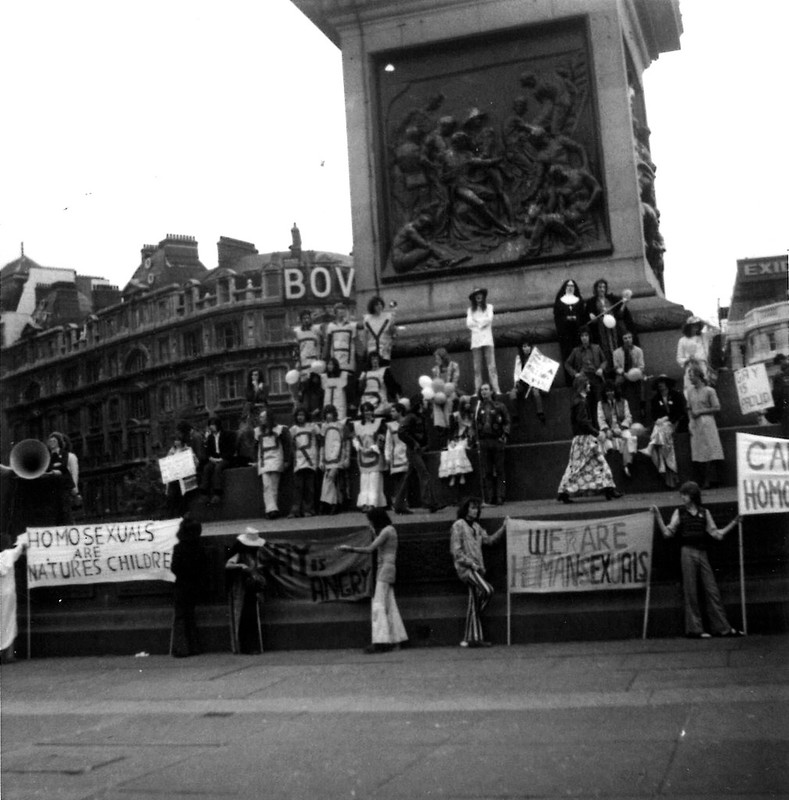
Other protests included placing stickers in books that portrayed homosexuality in a negative way, sit-ins in pubs that refused to serve anyone wearing a GLF badge, and releasing mice at the launch of the Nationwide Festival of Light at the Methodist Central Hall, Westminster.
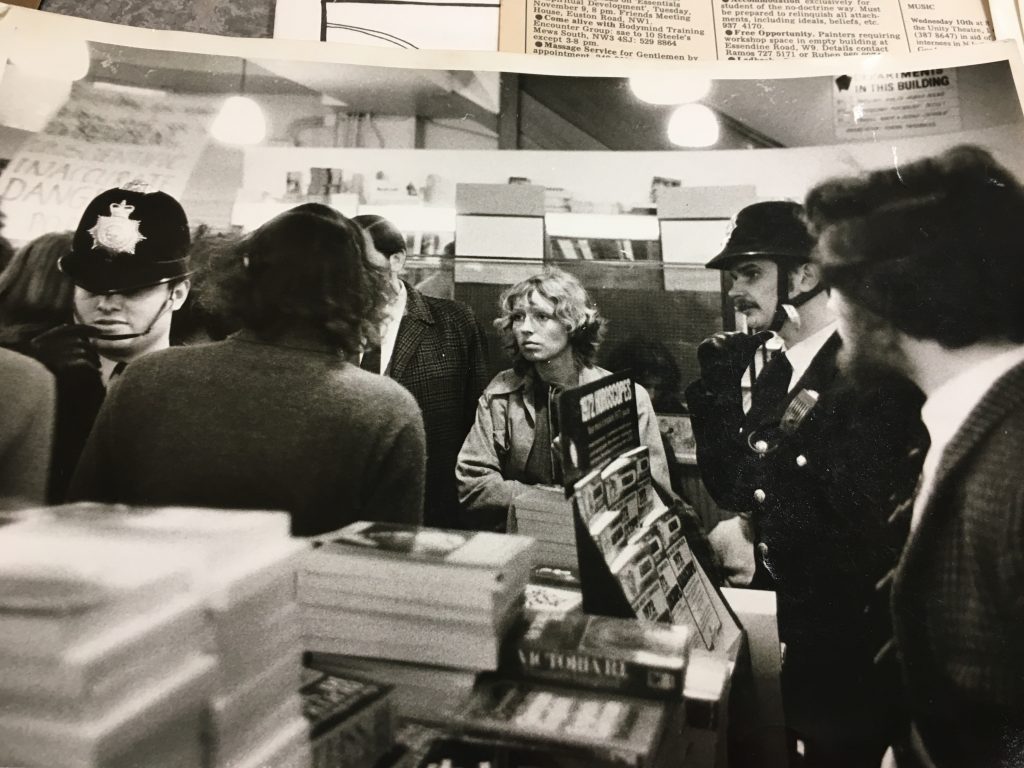
By the end of 1971, hundreds were now attending the Wednesday meetings at LSE and another, larger venue had to be found. Splits were also starting to form and different GLF groups emerged in Camden, Notting Hill, South London and East London. The GLF lesbians formally separated from gay lib. Other GLF groups were set up in Sussex, Birmingham, Leeds, Bradford and Manchester.
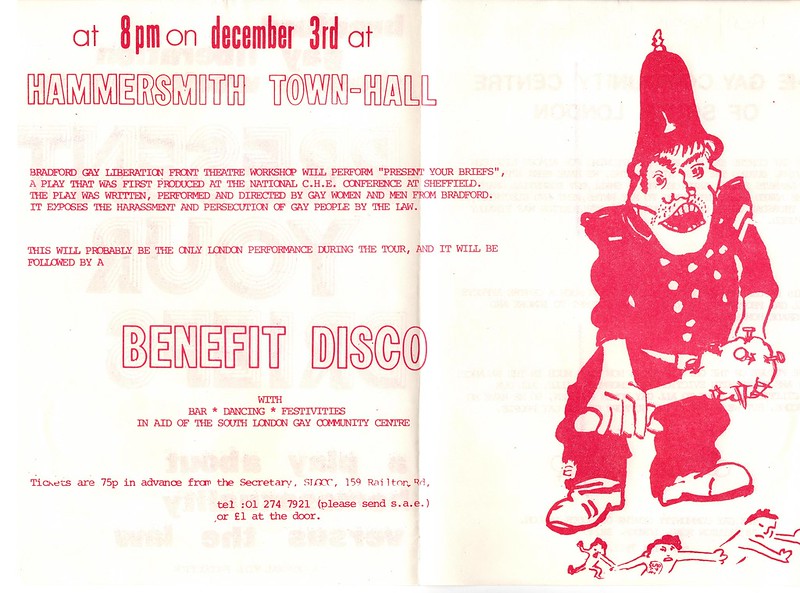
This was a beginning. The Gay Liberation Front was a catalyst. They blazed a trail, breaking down barriers that led the way to a more liberated LGBT community. Many members went on to do great things. Here are some of them:
- Andrew Lumsden co-founded Gay News in 1972.
- Bruce Bailey, Nettie Pollard et al started Gay Icebreakers, a telephone helpline and support group, in 1973.
- Malcolm Greatbanks stood as South London Gay Liberation Front candidate for Tulse Hill ward in the 1974 General Election.
- Aubrey Walter and David Fernbach founded Gay Men’s Press in 1979.
- Lisa Power co-founded Stonewall in 1989.
- Angela Mason became Director of Stonewall in 1992.
- Simon Watney, Peter Tatchell, et al founded OutRage! in 1990. Watney wrote a regular HIV / AIDS column in Gay Times.
- Mario Mieli founded FIORI! in Italy.
If you are interested in finding out more about any of these people, search our catalogues with their names to find out what material we hold about them.


